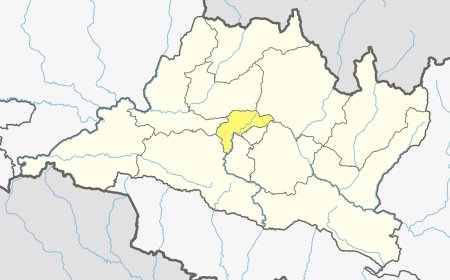Step-by-Step Guide to Company Registration in Nepal: Complete Procedure
Learn the complete procedure for company registration in Nepal with this step-by-step guide. From choosing the type of company to obtaining licenses and permits, we cover everything you need to know to register your business successfully in Nepal.

Starting a business in Nepal can be a complex process, but with the right guidance, it can also be a very rewarding experience. Company registration is one of the most important steps in starting a business, and this article will provide a step-by-step guide to the process of company registration in Nepal.
Step 1: Choose the type of company
The first step in company registration is to choose the type of company that best suits your business needs. Nepal has three types of companies: private limited, public limited, and one person company. Each type has its own set of advantages and disadvantages, and it's important to consult with a legal professional before making a decision.
Step 2: Obtain a Digital Signature Certificate (DSC)
Once you have chosen the type of company, the next step is to obtain a Digital Signature Certificate (DSC). This certificate is used to sign and submit all company registration documents electronically. It can be obtained from any authorized certifying agency in Nepal.
Step 3: Reserve a company name
The next step is to reserve a company name. This is done by submitting an application to the company registrar's office along with the DSC. The name must be unique and should not be similar to any existing company.
Step 4: Prepare the Memorandum and Articles of Association (MOA)
The Memorandum and Articles of Association (MOA) is a document that lays out the company's objectives, capital structure, and management structure. It must be prepared in accordance with the Company Act of Nepal and should be signed by all the directors and shareholders.
Step 5: File the incorporation documents
Once the MOA is prepared, the next step is to file the incorporation documents with the company registrar's office. These documents include the MOA, DSC, and a copy of the PAN card of all directors and shareholders.
Step 6: Obtain PAN and VAT registration
Once the company is registered, the next step is to obtain a PAN (Permanent Account Number) and VAT (Value Added Tax) registration. PAN is a unique identification number issued by the Inland Revenue Department, and VAT is a tax that is imposed on all goods and services.
Step 7: Obtain a TIN (Tax Identification Number)
In order to start a business in Nepal, it is also necessary to obtain a TIN (Tax Identification Number) from the Inland Revenue Department. This number is required for all business transactions, including filing taxes and registering for other licenses.
Step 8: Obtain other licenses and permits
Depending on the nature of your business, you may need to obtain other licenses and permits. For example, if you are planning to start a restaurant or other food-related business, you will need to obtain a food and beverage license. Similarly, if you are planning to start a manufacturing business, you will need to obtain a pollution control license.
Step 9: Register with the Employees' Provident Fund (EPF)
All companies with more than 20 employees are required to register with the Employees' Provident Fund (EPF) within 30 days of starting operations. The EPF is a retirement savings plan for employees and is administered by the government.
Step 10: Register with the Employees' State Insurance (ESI)
All companies with more than 10 employees are also required to register with the Employees' State Insurance (ESI) within 30 days of starting operations. The ESI provides health and other benefits to employees and is also administered by the government.
In conclusion, starting a business in Nepal can be a complex process, but by following these steps, you can ensure that your company is properly registered and compliant with all relevant laws and regulations. It's important to seek professional advice when starting a company, as this will make sure that your company follows the laws and regulations of Nepal.
What's Your Reaction?








































































































